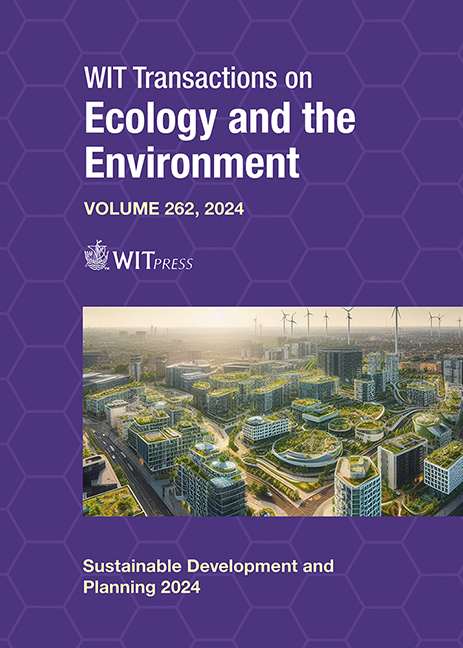TOWARDS SUSTAINABLE CITIES: FLORA GROWN AND TRADED IN SALVADOR, BRAZIL
Price
Free (open access)
Transaction
Volume
262
Pages
11
Page Range
129 - 139
Published
2024
Paper DOI
10.2495/SDP240111
Copyright
Author(s)
ISABEL MARIA MADALENO
Abstract
The 1988 Constitution of Brazil gives all citizens the possibility to democratically have a say in the design of the urban planning. The paper discusses good examples of urban agriculture practices in front yards, including museum houses, one of the writers Jorge Amado and Zelia Gattai, as well as survey results of food, spice, medicines and aromatic plants traded in Salvador. This case study focuses on a culturally rich Brazilian city, the first Portuguese colonial capital in the South American country. The materials used were twofold: (1) Old manuscripts, such as the letter of Pero Vaz de Caminha, who accompanied and recorded the first historically recognised trip of a Portuguese navigator to Brazil. In fact, Pedro Álvares Cabral is accepted as the official discoverer of the new colony, having arrived at Porto Seguro in 1500, located south of Salvador; (2) Flora records from a scientific mission conducted by the author in August 2023, at the service of CTROP, the Tropical College of the University of Lisbon. The aim of this study was to gather the flora grown and traded in the capital city of Bahia and compare it to the early colonisation records. It totalled 50 interviews with urban gardeners and traders. Results show that 151 taxa were both traded and gardened in Salvador, 51.7% consumed as food in natura or in traditionally cooked dishes, and 19.2% applied or ingested as medicines. A second objective is to add data to the database initiated in the Tropical Institute aiming to compare results from several locations colonised by the Portuguese, in order to evaluate the sustainability of local flora.
Keywords
Salvador, Brazil, urban agriculture, trade, sustainability





